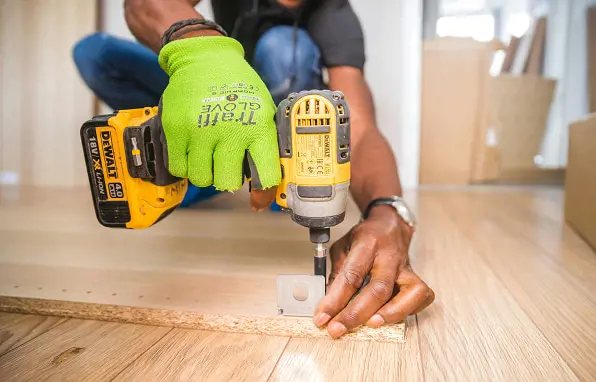Legal vs Illegal Home Expansion Projects In SA
24 AUGUST 2023
If you are planning some home renovations, check out what projects require municipal approval to be legally built before you begin. Whether you are looking to add value to your property (or simply improve convenience) building projects can be tricky for those who don’t undertake them often. Building in South Africa is highly regulated, so you can't always expand and change your home as you may wish to, sometimes you need approval. The last thing you want to do is spend on building, only to have your project taken down.
Whether you are looking to add value to your property (or simply improve convenience) building projects can be tricky for those who don’t undertake them often. Building in South Africa is highly regulated, so you can't always expand and change your home as you may wish to, sometimes you need approval. The last thing you want to do is spend on building, only to have your project taken down.
Below we call out some of the most noteworthy points of the National Building Regulations and Building Standards Act (No. 103 of 1977) for understanding the legal requirements of home expansion projects in South Africa. Let’s start off with looking at some of the improvements that you can take on without having to get government approval.
Legal Home Building Projects
Carport: A carport is usually an open structure with a roof that is used to offer your cars some protection against harsh weather conditions and the hot, African sun. It can be attached to a house or built as a standalone structure. According to the National Building Regulations, an "open-sided car, caravan or boat shelter or a carport where such shelter or carport does not exceed 40m2 in area " does not require approval.
Private Swimming Pool: Any private swimming pool, regardless of size, does not require government approval. However, it's important to note that the pool must comply with the safety standards set out in Regulation A19 of the Act.
Garden Shed: A garden shed is usually a small, simple structure used to store garden tools and other similar equipment. According to the regulations, "an unenclosed tool or garden shed, not exceeding 10 square metres in area" does not require approval.
Pergola: A pergola is a simple outdoor structure that consists of pillars and a roof made of beams or slats. It can be used to provide shade, support climbing plants, or add a bit more visual appeal to an outdoor area. According to the regulations, "an open-sided pergola, not exceeding 20 square metres in area" does not require approval.
Greenhouse: As the world moves to becoming more conscious of the carbon footprint that we are leaving behind, more people are looking for projects that fit this drive. Having your own greenhouse for vegetables and plants can add significant value, and according to legislation you can build a “greenhouse not exceeding 15m2 in area” without approval.
Above are just some examples, and there are similar types of structures that would fall under "minor building work", such as a poultry house, aviary, children's playhouses and cycle sheds. Check out the full section in the regulations for direction.
Restricted Home Building Projects
Extension or Addition to a House: Any extension or addition to an existing house requires approval. This includes adding a new room, a second storey or a garage. According to the regulations, "no person shall, without the prior approval in writing of the local authority concerned, erect any building...or alter or add to any existing building".
Boundary Walls and Fences: Any boundary walls or fences that exceed 1.8 metres in height require government approval. According to Section 13 of the National Building Regulations, "no person shall...erect any freestanding wall of brick, stone, concrete, or other similar materials on a property, or any part thereof, within a distance of 1,5 metres from any public road or street boundary or from any adjoining site which is at a higher level".
Swimming Pool Fence: Any fence or barrier erected around a swimming pool must comply with the safety standards set out in Regulation A19 of the Act. The fence or barrier must be at least 1.2 metres high, with no gap larger than 100 millimetres between any vertical bars or other members.
Non-Compliant Structures: Any structure that does not comply with the safety standards set out in the Act is considered illegal. This includes any structure that is unstable, likely to collapse, or poses a danger to the public.
Time Constraints: While you may wish to pace yourself on some larger DIY construction jobs it’s important to note that your neighbours may complain that your project is abandoned and unattractive. According to the rules, “If for a period exceeding 3 months the erection of a building is not proceeded with, the local authority may order the owner of such building to resume” - or face demolition.
It’s important to note that even if a home building project does not require government approval, it must still comply with building regulations and safety standards. Homeowners should always consult with a qualified professional to ensure that their building project meets all legal requirements, this way you aren’t surprised by added costs down the line.
Additionally, while the National Building Regulations and Building Standards Act (No. 103 of 1977) provides guidelines for home building projects, other regulations and by-laws may apply depending on the location and type of project. It's essential to check with the relevant authorities before starting any serious building work.
Once you’ve done that, it’s best to also cost out the exercise in advance. If necessary you can opt for an online loan application to assist with the finances, or use the relevant RCS store card, such as the Builders card, to get all the small bells and whistles. Keep in mind any extra costs that could pop up during the building process – you don’t want to have construction grind to a halt over a small oversight.



